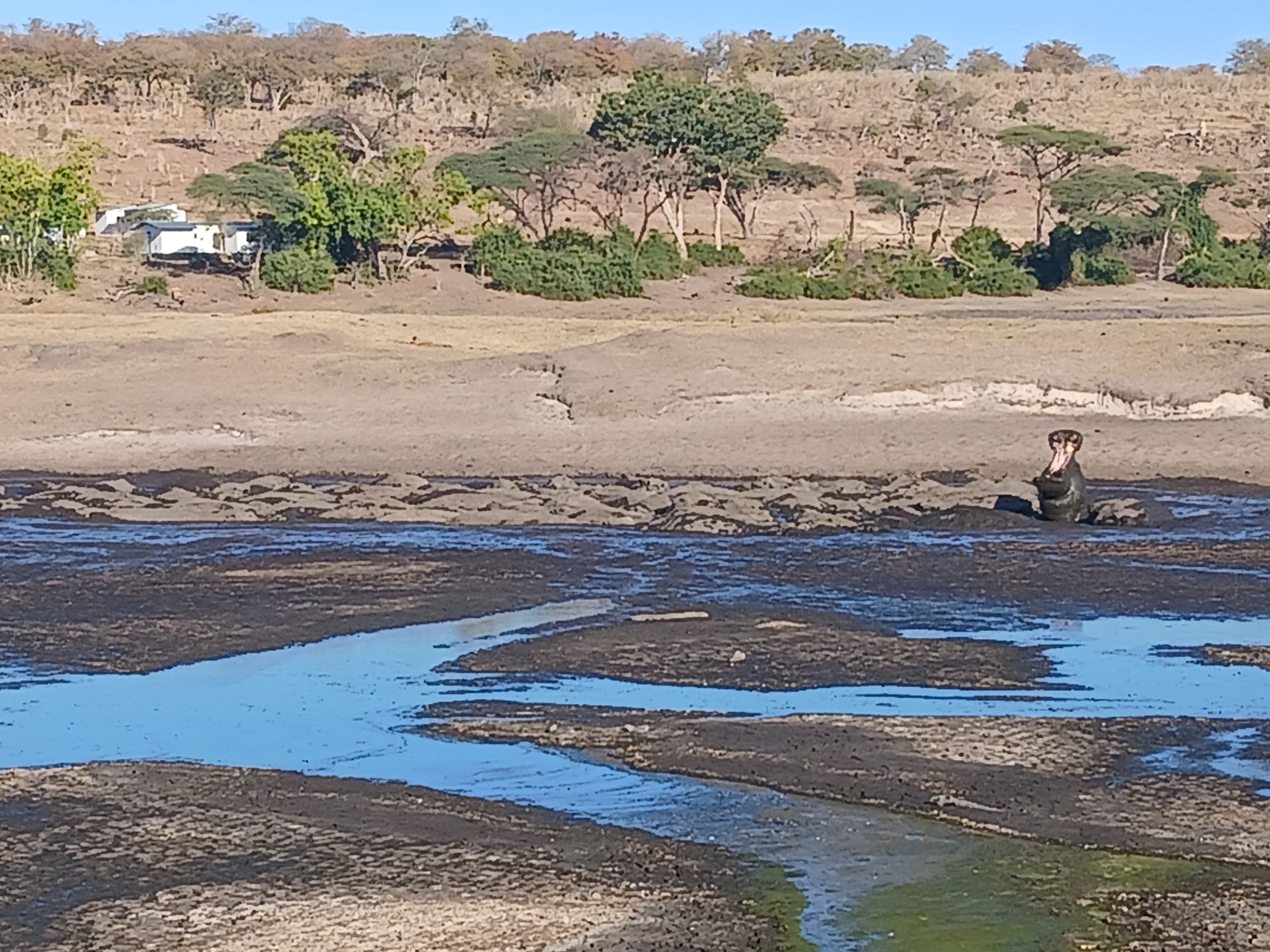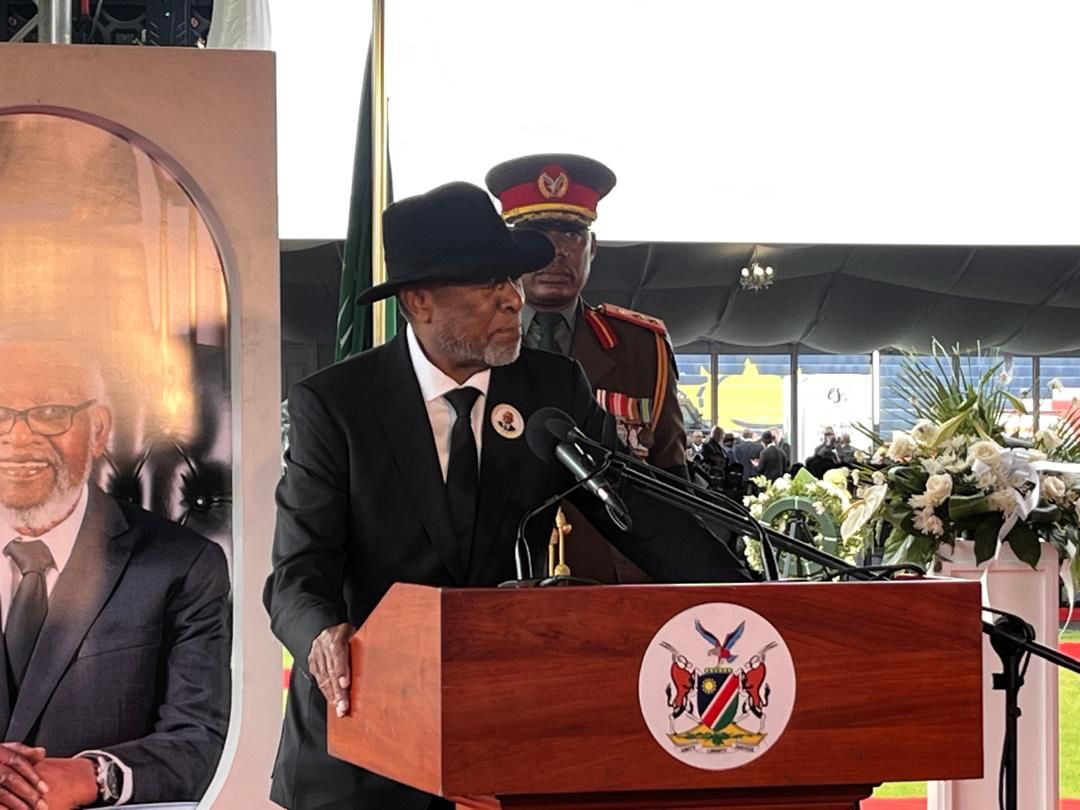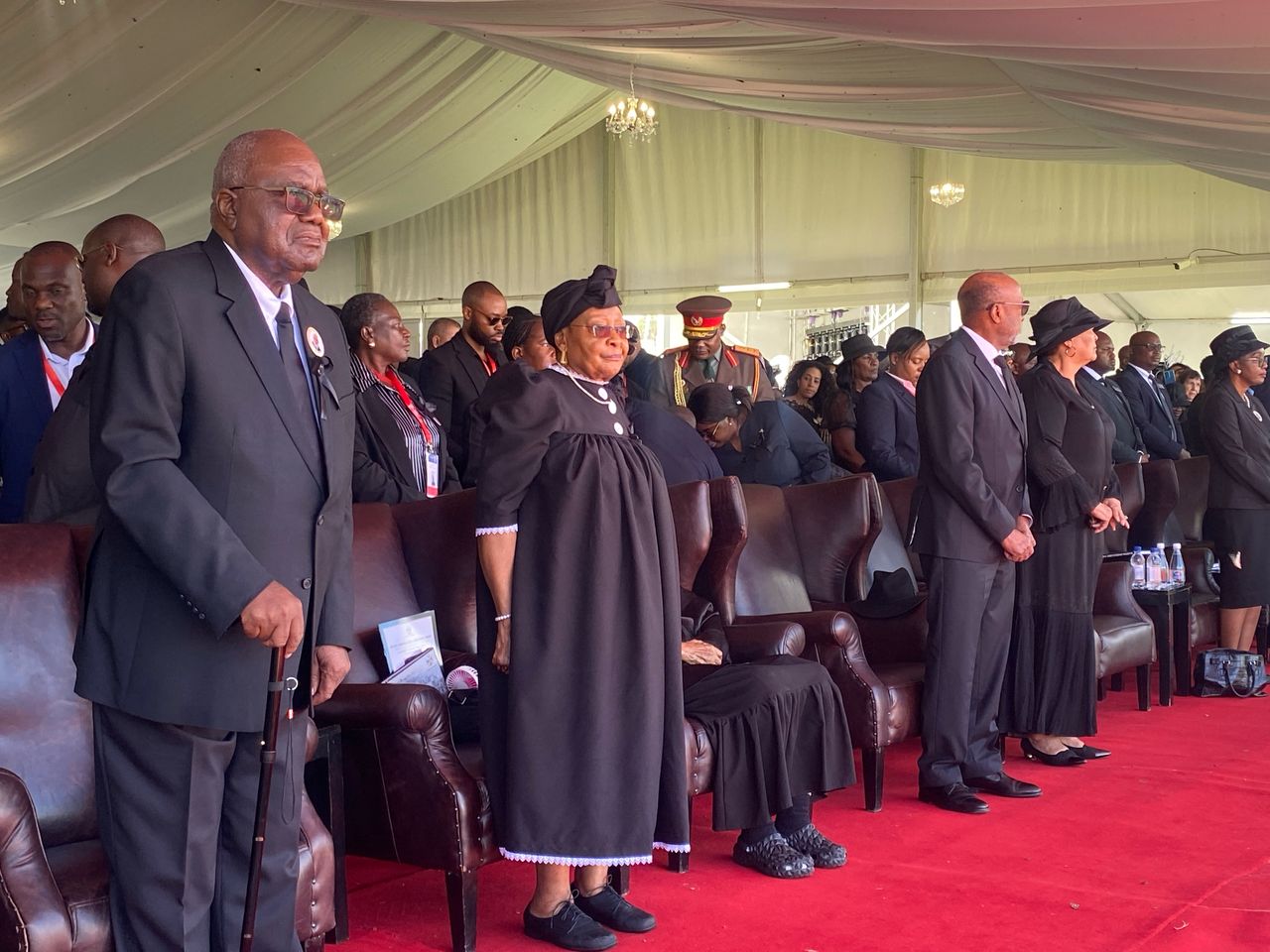The Ministry of Environment, Forestry and Tourism has started plans to urgently drill more boreholes to pump water for 135 hippos stranded in a thick mud pool in the Zambezi region.
In efforts to provide water for the hippos usually found in the Rungara stream of the Mutikitila area, Salambala conservancy game rangers have been pumping water into the stream since April.
The dried stream is a result of the prevailing drought, which has left the hippos with nowhere to go to find water.
Environment minister Pohamba Shifeta went to assess the state of the hippos on Wednesday.
“These animals find themselves in a critical condition, so we have to drill more boreholes in order to save them. We also need to increase the pumping capacity of the current borehole,” he said.
Shifeta noted that the current situation is a recurrence of a 2019 incident in which more than 80 hippos were stranded.
“However, this situation is worse than that of 2019, as this stream is completely dried up. This is a serious indication of climate change.”
Shifeta added that hippos across the region face similar circumstances, while other wildlife is also affected by the water scarcity. He said therefore, when they pump water, they will ensure it is enough for all wildlife.
Currently, there are an estimated 4 000 hippos in the Zambezi region.
Salambala conservancy manager Fabian Mavuna noted that currently they can only pump water during the day using a solar pump, as the diesel generator is broken.
He said there is also a need to excavate the mud because it is too much and absorbs most of the pumped water.
“The pond not only caters for the wildlife but also for the livestock of the farmers from the surrounding areas. However, the water we pump is not enough… as the pressure of the pump is low,” he added.
Stay informed with The Namibian – your source for credible journalism. Get in-depth reporting and opinions for
only N$85 a month. Invest in journalism, invest in democracy –
Subscribe Now!










